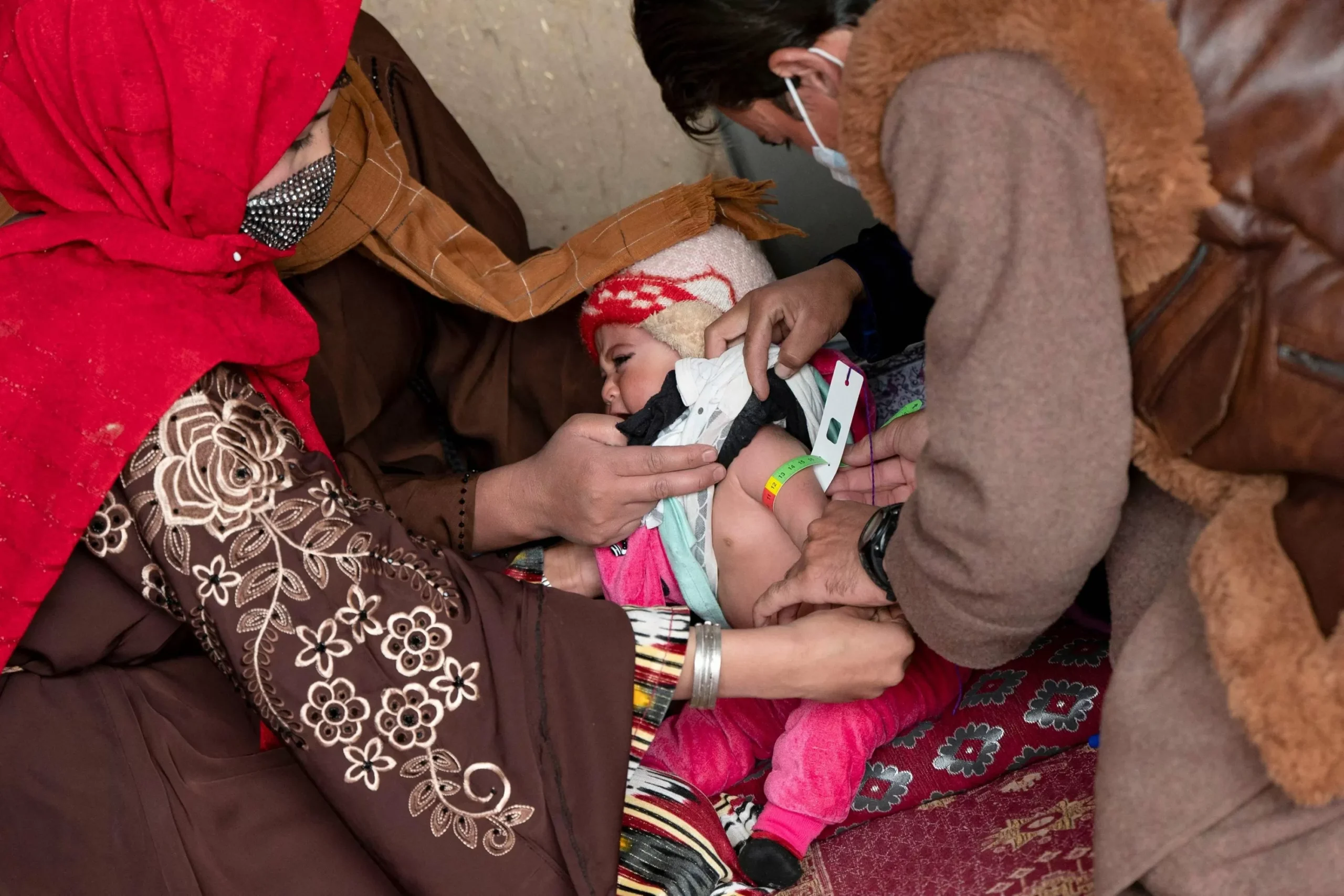Afghanistan’s Future Generations at Risk: Addressing the Growing Threat of Malnutrition
In a country already facing numerous challenges, Afghanistan’s future generations are now facing a new and growing threat – malnutrition. According to recent reports, one in 10 young children in Afghanistan are affected by malnutrition, a statistic that is both alarming and heartbreaking.
Roya, a young mother from Kabul, knows this reality all too well. Her two-year-old son, Ahmad, suffers from severe malnutrition. “I didn’t know what was wrong with him,” Roya shared. “He was constantly sick, weak, and not growing like other children his age.”
Unfortunately, Roya’s story is not unique. In fact, thousands of children in Afghanistan are facing the same fate due to a combination of factors such as poverty, lack of access to proper healthcare, and food insecurity.
The ongoing conflict in Afghanistan has only exacerbated the situation, leaving families like Roya’s struggling to survive. With limited access to food and clean water, malnutrition has become a widespread issue, especially among young children. This not only affects their physical health but also their cognitive development, leading to long-term consequences for their future.
Malnutrition not only affects the individual child but also has a ripple effect on the entire community. Children who suffer from malnutrition are more susceptible to diseases and infections, which can spread to others in their community. This not only puts their own lives at risk but also adds to the already strained healthcare system in Afghanistan.
The situation is dire, but it is not without hope. Organizations such as UNICEF and Save the Children are working tirelessly to address malnutrition in Afghanistan. They are providing life-saving treatment to children like Ahmad and educating mothers like Roya on proper nutrition and feeding practices.
But more needs to be done. The international community must also step up and support these efforts. The ongoing conflict and humanitarian crisis in Afghanistan have led to a severe funding gap, hindering the delivery of vital aid to those in need. This must change.
Investing in the health and well-being of Afghanistan’s future generations is crucial for the country’s development and stability. Malnutrition not only affects a child’s physical health but also their ability to learn and reach their full potential. By addressing this issue now, we are not only saving lives but also investing in a brighter future for Afghanistan.
Governments and donors must also prioritize long-term solutions to address malnutrition in Afghanistan. This includes improving access to clean water and sanitation, promoting breastfeeding, and supporting local agriculture to ensure a steady supply of nutritious food.
Furthermore, empowering women and girls is essential in tackling malnutrition. Women are often the primary caregivers in households, and educating them on proper nutrition and feeding practices can have a significant impact on the health of their children.
The government of Afghanistan also has a crucial role to play in addressing malnutrition. They must prioritize the health and well-being of their citizens, especially the most vulnerable, by investing in healthcare and social safety net programs.
But ultimately, it is the responsibility of all of us to ensure that Afghanistan’s future generations are not robbed of their potential due to malnutrition. We must come together and take action to address this growing threat.
Roya’s son, Ahmad, is now receiving treatment and is on the road to recovery. “I am grateful for the help we have received,” Roya said with tears in her eyes. “I hope that no other mother has to go through what I did.”
Let us work together to make sure that Roya’s hope becomes a reality. Let us invest in the health and well-being of Afghanistan’s future generations and give them the chance to thrive and build a better future for their country. The time to act is now.




![Complete BritRail Pass Guide [Types, How to Use It, Pros + Cons]](https://inside-news.uk/wp-content/uploads/2025/06/00221EB4-BCA2-4DBB-6CD4-83DBC37D71FA-120x86.webp)












